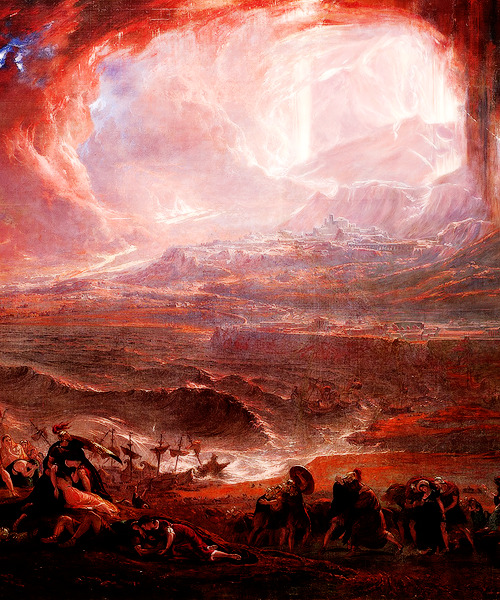unhistorical: August 24, 79: Mount Vesuvius erupts. Much of what is known of the catastrophic erupti
unhistorical: August 24, 79: Mount Vesuvius erupts. Much of what is known of the catastrophic eruption of Mount Vesuvius comes from the descriptive epistles of Pliny the Younger (nephew of Pliny the Elder), who wrote that the event, which buried the nearby cities of Pompeii, Herculaneum, Stabiae, and others, was preceded by a series of small earthquakes that were not then recognized as precursors of the destruction that was to come. By all accounts, nearly everyone living within reach of the volcanic destruction was caught unprepared when Mount Vesuvius finally erupted - ejecting thick clouds of stone and ash into the air, and engulfing the cities in pyroclastic material, layered several feet thick. Between 16,000 and 20,000 people were killed in the destruction, either from inhaling deadly gas fumes, from suffocation through ash inhalation, or from being struck by pieces of debris and rock. The subsequent rainfall turned the layers of ash and volcanic material which covered Pompeii into a kind of natural concrete, hiding and preserving the city until its rediscovery in the 16th century. Herculaneum was not rediscovered and excavated until 1738. Excerpt from one of Pliny’s letters/accounts of the eruption: Ashes were already falling, not as yet very thickly. I looked round: a dense black cloud was coming up behind us, spreading over the earth like a flood.’Let us leave the road while we can still see,’ I said, ‘or we shall be knocked down and trampled underfoot in the dark by the crowd behind.’ We had scarcely sat down to rest when darkness fell, not the dark of a moonless or cloudy night, but as if the lamp had been put out in a closed room. -- source link
Tumblr Blog : unhistorical.tumblr.com

